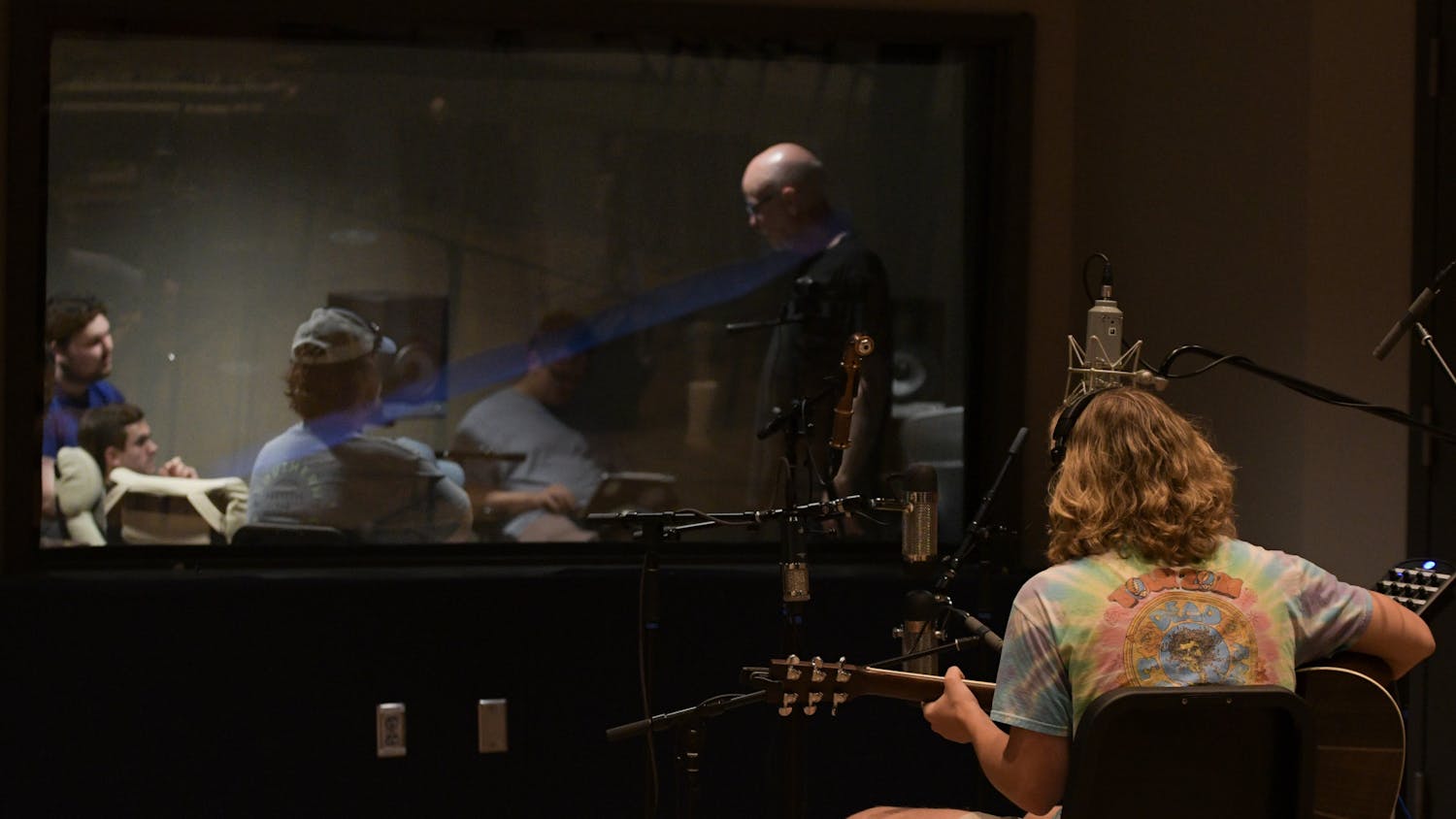Renowned theoretical physicist and cosmologist Lawrence Krauss spoke about the origin of the universe in a lecture at the Sciences Center Auditorium this Tuesday. The lecture was the last lecture of the year in Littleton-Franklin Lecture Series.
Krauss has authored more than 300 scientific publications and received numerous awards including the American Association for the Advancement of Science's 1999-2000 Award for the Public Understanding of Science and Technology.
Gerard Elfstrom, head of the Littleton-Franklin Lecture Series, said Krauss has an extraordinary way of making difficult concepts accessible to ordinary people.
"People think they can't understand physics," Elfstrom said. "In this lecture, I think Krauss showed his skill for explaining these ideas and making them understandable."
The lecture was based on Krauss's book, "The Universe From Nothing: Why Is There Something Rather Than Nothing," and Krauss eloquently explained his theories on the subject to the packed auditorium.
"Empty space is not really empty," he said. "Nothing is a boiling, bubbling brew of virtual particles that are popping in and out of existence on a time scale so short we can't see them."
Although we can't see these virtual particles, Krauss said we can measure them indirectly and prove their existence.
These virtual particles that exist in what we consider "nothing," he said, are how the universe came to be.
"Nothing is unstable," Krauss said. "You'll never have nothing for long. Eventually, if you wait long enough, you'll have something."
In fact, Krauss said space itself appears from nothing.
"Even the laws of physics came into existence when our universe came into existence," he said.
Krauss said science has demonstrated that a universe from nothing is "not only plausible, but likely."
He said the reason he got into cosmology, however, was not to find out how the universe came to be, but to find out how the universe is going to end.
"I got fascinated with these questions by reading books by scientists when I was a kid," he said. "So now I'm trying to return the favor by writing about it for young people now."
Hesaid these ideas are important for everyone to think about and celebrate.
"To me, the average person should enjoy Shakespeare and enjoy music of all sorts and plays and theatre," he said. "Science is one of the greatest cultural developments of mankind--of humankind. The intellectual adventure that is called science is the greatest intellectual adventure of all time."
Krauss may only have visited Auburn for one day, but he left his audience with a profound message:
"... Here we are in this random time, in this random place, in the middle of nowhere and we've evolved a consciousness which allows us to appreciate it, to understand it, to ask questions, to use our brains, to enjoy ourselves and to make meaning in our lives," he said. "There may be no purpose to the universe but the purpose to us, is the purpose we make."
Do you like this story? The Plainsman doesn't accept money from tuition or student fees, and we don't charge a subscription fee. But you can donate to support The Plainsman.



